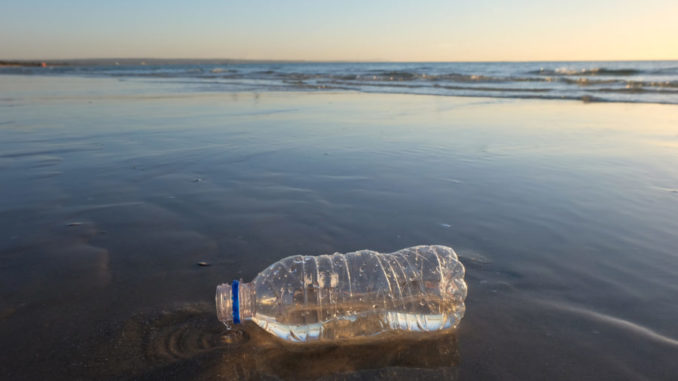
Nature across globe has now been significantly altered, with 75% of the land surface extensively modified, 85% of the wetland lost, and two thirds of the oceans bearing mounting cumulative impacts. There is growing evidence that human actions are irremediably altering natural ecosystems and driving increasing numbers of plant and animal species to extinction. Humans have modified the flows of the most long rivers other than those found in remote regions.
Not surprisingly, biodiversity is declining rapidly across the world. Bottled water has become an important source of plastic waste, a scourge made worse by single use straws, cutlery, food containers and other plastic items. In India, plastic debris is clogging up landfills, blocking drains and polluting waterways. Plastic litter on roadsides and beaches and in other public spaces has become an eyesore. The well off in India increasingly rely on bottled drinking water for their daily consumption and household chores. Bottled water carries a large environmental footprint: It entails use of significant resources to source, process, bottle and transport the water. Moreover, the bottled water is processed ground water. Tapping subterranean water reserves on a large scale for bottling is depleting not just aquifers but also rivers and streams that draw water from aquifers.
Mass production of plastic began just six decades ago. The bottled water industry took off after commercial advent in the 1990s of sigle serve bottles made from polythylene terphthalate (PET), or polyester plastic. PET has helped turn water- and other drinks- into portable and light weight consumer products. But PET takes hundreds of years to biodegrade and if incinerated, generates toxic fumes. PET is just one type of plastic that is damaging the environment and threatening human health. The increasing plastc pollution of oceans (including the chemicals added to plastic to provide malleability or other qualities) is affecting many species of marine life. That, in turn, affects human food chains. Micro-plastics, ot the tiny particles into which plastic degrades, have been found in the guts of many fish.
The global plastic waste crisis has been accentuated by Chinese and Indian bans on the import of such trash for recycling. India, which long had been one of the world’s largest importers of plastic waste despite generating 26,000 tons of its own plastic garbage per day, banned all such imports only three months ago. It has now embarked on an ambitious plan to phase out single use plastics 2022. But India still has no concrete national strategy to clear the plastic debris polluting its land and waterways. Nor is there a national policy mandating recycling of plastic bottles. Bans on plastic bags in some states have been enforced half-heartedly at best. Indeed, just like the current disincentives in India to domestic manufacturing which encourage industries to rely on imports to overcome issues ranging from raw materials, land and labour to taxes the present Indian policy (or lack of it) makes it cheaper for producers of drinks to utilize PET than an eco-friendly material. Bottlers are not even required to operate a deposit return scheme, in which a small cash sum is returned for each empty bottle given back to retailers.
India can learn from Germany, the world’s recycling champion, as to how right policies and regulations can promote high rates of recycling. Imagine, if a similar monetary incentive was offered to the poor in India to collect bottles- and all other plastic waste- and deposit them with retailers. It would help dramatically control plastic trash and litter. Creating more a sustainable world demands effective management of plastic waste, innovations towards eco- friendly substitutes, and monetary incentives to help clear plastic debris.
India must remember that waste pickers hold the key to the effective waste management, including recycling, but they need a living wage to serve tha public. Deposit return schemes are necessary but not sufficient as they are usually restricted to bottles. Through an environmental tax on plastics, India could raise money to incentivise and reward the collection of all plastic debris. Consumer goods companies should also be made to help cover the costs of waste management and clean up. The plastic waste scourge is seriously imperilling India’s environmental well-being, including contaminating our fresh water and food chain. Without urgent action locally and globally to arrest the problem, there will be, as research shows, more plastic than fish by weight in the oceans by 2050. And more people might be dying from cancer and other environmental diseases.
Matter referenced:
Brahma Chellany, Times of India, Ahmedabad, Thursday, 27th June, 2019.
By: Dr. Bhawana Asnani.
Happy to see Reviews, Additions, Suggestions and Comments, further.

Leave a Reply
You must be logged in to post a comment.